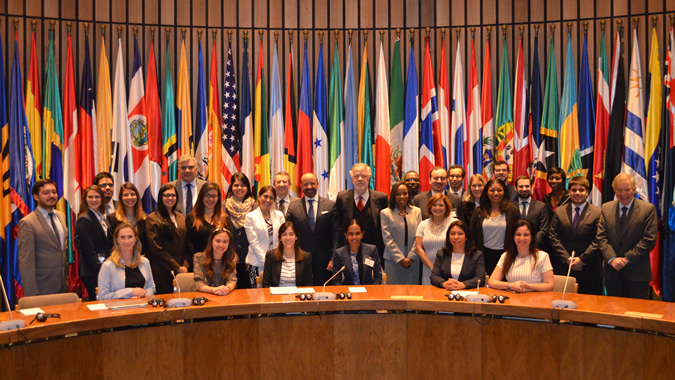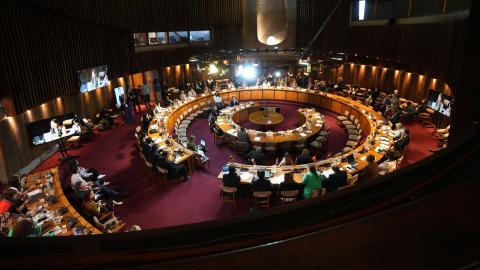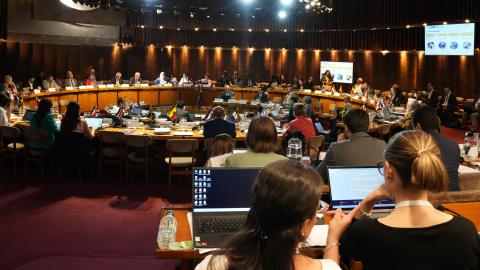Press Release
Lawyers and legal specialists from 18 countries in the region kicked off on Wednesday, April 26 the United Nations Regional Course in International Law for Latin America and the Caribbean, which will be held at ECLAC’s facilities in Santiago, Chile.
This four-week program is being attended by 22 scholars and prestigious professors who will address various subjects of international law. The course is organized by the Codification Division of the United Nations Office of Legal Affairs, in collaboration with the government of Chile and the Economic Commission for Latin America and the Caribbean (ECLAC).
The gathering was inaugurated by Antonio Prado, ECLAC’s Deputy Executive Secretary, who welcomed the participants. Other speakers at the opening ceremony were Chile’s Acting Undersecretary of Foreign Relations, Ambassador Milenko Skoknic, and the United Nations Under-Secretary-General for Legal Affairs, Miguel de Serpa Soares.
In addition to highlighting the importance of addressing aspects of international law in a training of this kind – since the majority of public policies in place in the region are enshrined in some kind of law, rule, regulation or standard – Antonio Prado indicated that international law affects domestic regulations in Latin American and Caribbean countries upon being incorporated into national legal systems.
“The multilateralism that ECLAC exercises by mandate of its member countries facilitates the identification of public policy consensuses through joint reflection and the identification of comparative good practices that give technical support to the adoption of national policies,” Prado stated.
As an example of a global accord that has an impact on national policies, ECLAC’s Deputy Executive Secretary cited the 2030 Agenda and its Sustainable Development Goals, adopted in September 2015 by the UN General Assembly and the regional progress of which will be assessed at the first meeting of the Forum of the Countries of Latin America and the Caribbean on Sustainable Development, which is being held in Mexico City on April 26-28, 2017.
Another important example that will be addressed in the course is the unprecedented process of negotiation on the rights of access to environmental information, participation and justice (Principle 10 of the Rio Declaration on Environment and Development), which is expected to conclude successfully this year with the text of a legal instrument that will strengthen the application of these rights in the 23 countries that are negotiating the accord today, Prado stated.
Meanwhile, Ambassador Milenko Skoknic indicated that those attending the course represent the diversity that exists in the region, both in terms of gender and representation of their countries. He sustained that there are distinct situations in each place and that international law must know how to adapt to these different realities.
“Respect for international law is a fundamental pillar of the State of Chile,” he said. “An essential element for the functioning of the global system is the principle of adhesion to international law and the peaceful solution of controversies.”
Finally, the United Nations Under-Secretary-General, Miguel de Serpa Soares, indicated that this course is part of a program of the global body that is already more than 50 years old and seeks to promote knowledge of international law in the world’s various regions. He reaffirmed the organization’s commitment to continue holding these trainings every year.
“Carrying out these courses is inherent to the implementation of the core principles of the United Nations Charter,” Serpa Soares said. “In addition, this course aims to be a vital experience in which all of you forge a community that believes in the legal force of international law, in the values that underpin it, without forgetting about the specificities of the regional framework to which you belong,” the senior UN official told participants.


